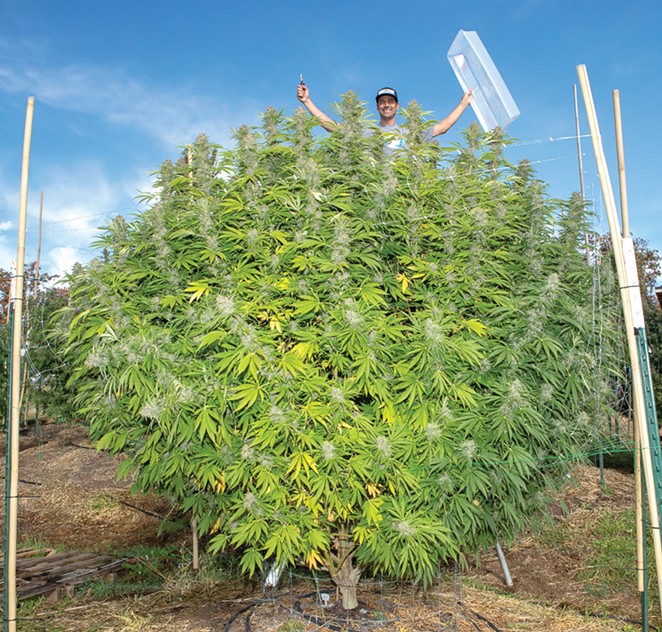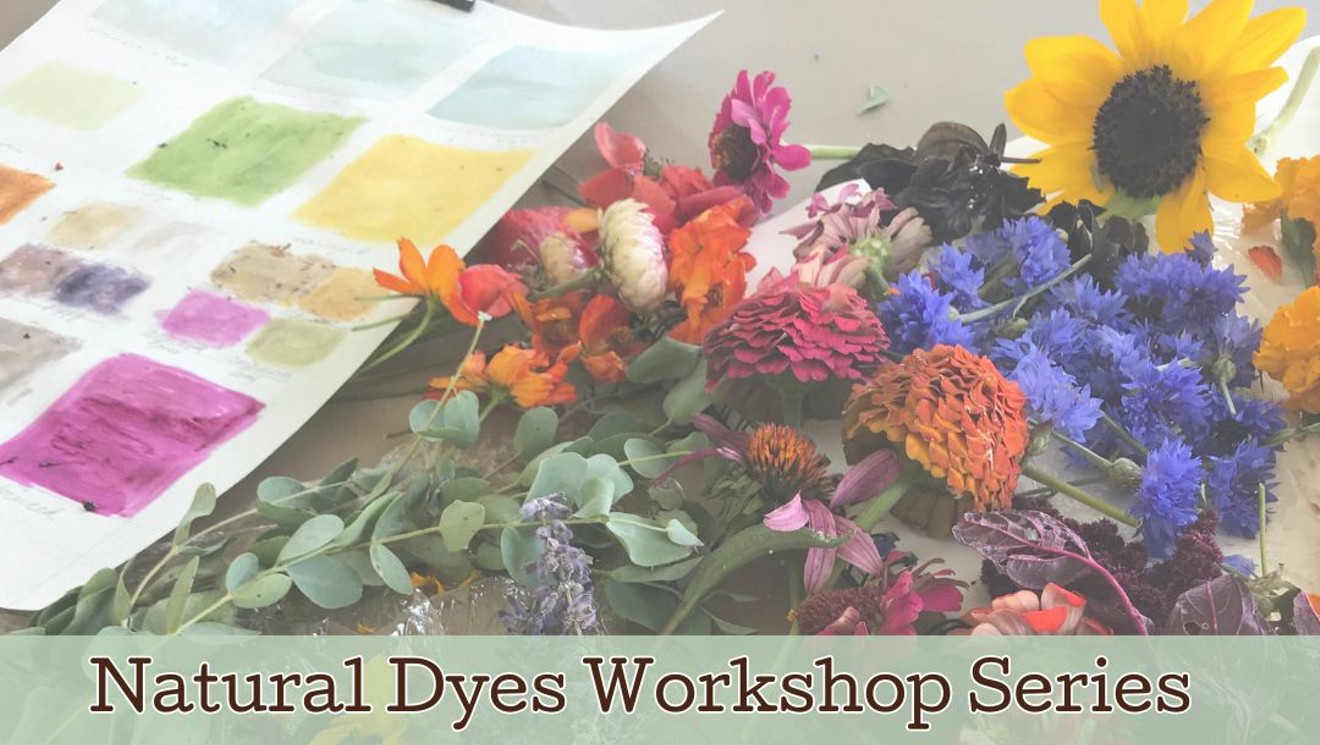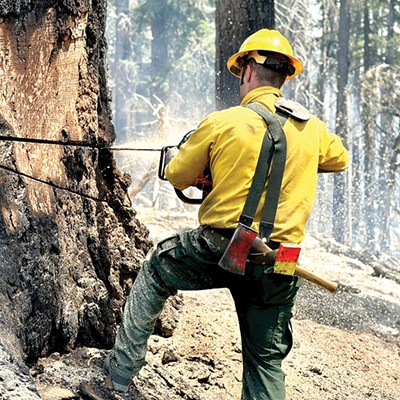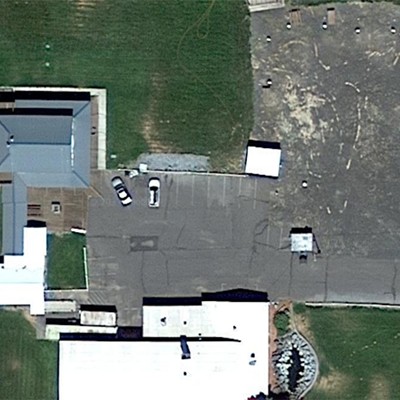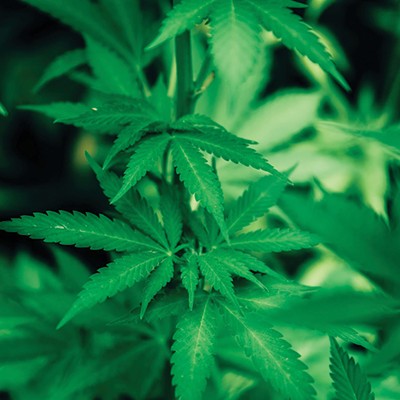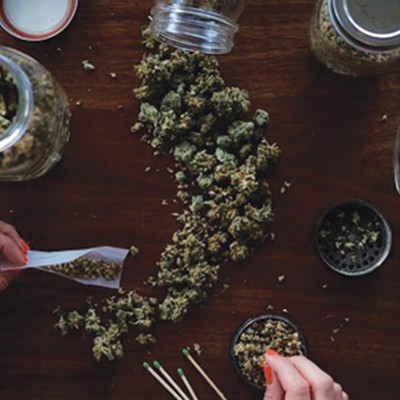When Oregon legalized cannabis in 2014 it set off a gold rush among farmers, processors and retailers looking to capitalize on what's now the sixth-biggest cash crop in the country. But like all commodities they go through boom and bust periods, when supply and demand play a dangerous game of tug of war that decrease a product's value below the cost of running a sustainable business. We reached out to Peter Butsch, owner of Massive Seeds, a cannabis seed company, and Roganja, a cannabis farm, about the current state of the industry.
We've lightly edited the text for length and clarity.
Source Weekly: What are the big changes in the industry you've seen since from legalization to now?
Peter Butsch: As an emerging market in 2016, wholesale pound prices for outdoor cannabis were anywhere from $1,600 to $2,000 a pound wholesale. Now with the current market saturation that we're seeing, oversaturation, the same pounds are now selling for $400 to $700 a pound. There's some rebound happening now, but there's just been oversaturation and the market has really crashed. It's been really tough on most farmers. You've seen it in a lot of the other categories in the cannabis business as well. It's been rough this last year and a half especially.
SW: Does that have more of an impact on the agricultural side, or did it really hit retail the same way?
PB: Talking to some of my retail friends, they're also struggling and there's just a lot of saturation within that market as well. There's just a lot of competition and a lot of shops right next door to each other. So yeah, it's across the board. We've also had like some of our subcontractors that used to roll all of our joints, for example, they went out of business recently.
SW: How did the pandemic impact business? I know for like alcohol, it was good for them because more people are drinking. Was there a similar dynamic for cannabis?
PB: Definitely, there was a huge spike in sales and demand. A lot of people wanted to smoke a lot more weed and that time, and I think it was healthy for people and demand went up and prices also went up. Once the pandemic started subsiding, things really changed, along with just a huge glut of product and material, like flower being grown due to that demand, and then the crash followed that.
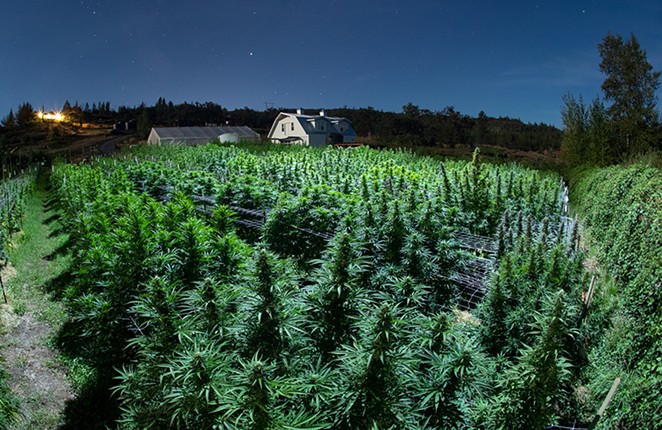
SW: Is the Marijuana business sustainable at these prices that we have right now? Can people make it work or does the market need to self-correct?
PB: It definitely needs to correct — the prices are unsustainable to keep most businesses afloat. It's almost at cost of goods sold right now; the margins are really low. But I feel like there is some correction occurring right now, there's a lot of farmers dropping out and/or cutting production. Farmers are just treading water, trying to make it through until prices rebound.
SW: I know there are still some banking regulations and other things that may make it more difficult for a business to function. Have any of those problems really been resolved nine years later?
PB: No, the banking is still a big issue. It seems like Congress keeps trying to pass a bill that will allow cannabis business businesses to bank like normal businesses do. But it never happens, so that's very frustrating. It makes it a lot harder to do business. And similar story with like possible interstate commerce being approved, same thing, it just never really has come to fruition yet.
SW: Are there different factors in the THC cannabis business that are different from what we saw with hemp?
PB: Yeah, it's different. I mean, hemp completely crashed as hard as a crash can be. And yeah, so many farmers dropped out of that business, especially for trying to sell trimmed flower CBD hemp. That was just a nationwide crash and oversaturation that occurred.
One positive nothing I would like to add is that the oversaturation in the Oregon cannabis market has really forced us and other Oregon farmers to become incredibly efficient growers and really streamline our business to survive through the current down cycle.
SW: What do you see as being the trend for this business and your outlook for the next couple of years?
PB: I feel like, and I've been hearing, that we've sort of hit a bottom, a baseline low price and that we are correcting prices. Prices are coming around and starting to go back up, so that's positive. We went through it back in 2018 as well, it's sort of a cycle that we see repeating itself; we had a flower market crash back in 2018 that didn't recover until the pandemic. Now we're going through it again. So, it's just it's part of the plight of the farmer.

